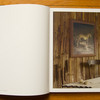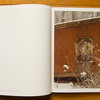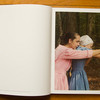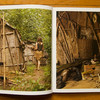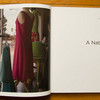Review: A Natural Order by Lucas Foglia
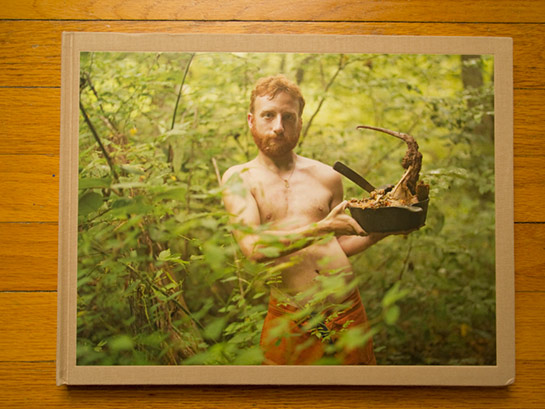
After Joel Sternfeld and Justine Kurland (and possibly others) Lucas Foglia is the latest photographer to explore alternative lifestyles away from the grid, in the woods, being self-reliant. There is considerable romanticism in this idea that you can help cure the ills of the world by withdrawing from all that is bad for the planet and, we must presume, yourself; and therein lies the trap for photographers trying to portray this kind of lifestyle. Mind you, there is nothing wrong with romanticism, since romanticism is related to idealism. But in the arts, romanticism is also the handmaiden of kitsch. (more)
As much as I personally appreciate the idea of self-reliance, its applications in the US tends to leave me wanting to embrace the complete opposite. Get me a nice cookie-cutter tract house in the suburbs, filled to the brim with plastic and completely artificial food already! No, that would just be the other extreme. But maybe you get what I’m saying here. I am a contrarian, and my natural reaction to something tends to be “I don’t think so.” or “Really?” I don’t accept things easily, especially not if someone just says so - I need to be convinced. What usually disturbs me about the many alternative communities I have seen is the cultishness around them. As is probably pretty obvious, that cultishness doesn’t gel easily with my desire to be convinced, not having to accept and/or believe. So that’s where I’m coming from.
I believe one of the most important traits of a good artist is to be willing to brush against the grain. And that could be any grain. It could be society’s - given our shallow culture that’s easy - but it certainly, if we stick with photography, should also be your subjects’. The latter is quite a bit harder. In fact, I am not even convinced that most photographers would agree with me here. There are many debates about how photography is exploitative. But why aren’t we having debates about how photography sometimes isn’t exploitative enough? I’m completely serious.
Maybe you think I’m having one of these days here (I can’t rule that out; I certainly watched a lot of Robert Hughes clips on YouTube last night and this morning). But I’ve been reading the book The New New Journalism (that’s no typo, the word “new” appears twice), a compilation of in-depth interviews with leading non-fiction journalists. I think any photographer might want to have a peek - there is a lot to learn from those journalists. And there is a lot of talk, a lot of thinking about the aspect of exploitation. Of course, there are some differences here, non-fiction journalism vs. the visual arts. But just like those journalists will do what it takes to tell their story, I do think that artists need to do what it takes to tell theirs.
Of course, that’s exactly what Foglia has done with A Natural Order. The book contains many very beautiful photographs, landscapes and portraits. But seen as a whole, as the book… there’s something lacking. It’s as if the photographer forgot his brush at home, to be used against the grain. It’s all so very pleasant, a book that, I’m sure, must please both those depicted here and those conscious of how it would be oh-so nice to live a lifestyle that was a little bit closer to Nature (but alas…). But what is at stake here? That I just don’t get. It just all feels a bit too nice, everybody is beautiful and extremely comfortable with their bodies (which, of course, is easy if you’re beautiful), Nature is bucolic…
Part of the problem might be that at 11 by 15 inches (28 by 38 cm for the metric part of the world) the book is simply too large. The photobook comes with a smaller, hand-made looking pamphlet/zine that contains all sorts of information. This is where the viewer really gets a closer look into the mindsets of the portrayed - but yet again, there is no questioning, no looking behind the scenes. The world these people live is unlike my world (which is totally fine). But I’d love to find out how their world is like mine, or maybe how there is an overlap. I’d love to find out that they have the same problems and desires. All that stuff. Their world doesn’t truly open up for me. It is being put on careful display, to be looked at, but not engaged with. And the physicality of the book reinforces this feeling: Take it off your shelve, put it on a table (nobody’s lap is large enough), look at it carefully, then put it away (since it’s too large not to get in the way).
Needless to say, maybe you don’t want your art to look behind the scenes, maybe you don’t want your artists to brush against the grain. That’s fine. There needs to be beauty in life - but real beauty needs to be flawed, so it can last. In any case, you definitely want to look at the book in person (hopefully, there is a bookseller near you that allows you to do that) - the images I produced don’t do the photographs much justice.
Lucas Foglia, A Natural Order, 80 pages (plus a little zine), Nazraeli Press, 2012
